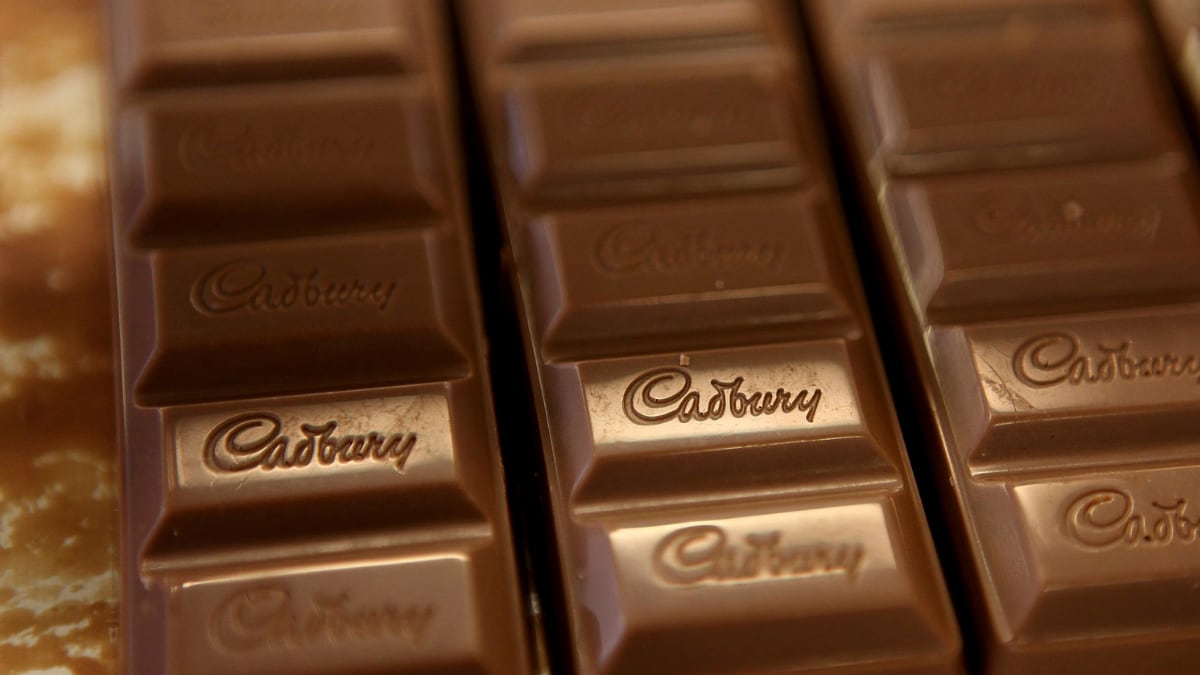Last Updated:
According to some insiders, Cadbury supplies to the royal family declined after Queen Elizabeth II’s death. The late Queen was known to enjoy Cadbury’s Bournville chocolates

Founded in 1824 in Bournville, Birmingham, Cadbury has become synonymous with British chocolate-making heritage. (AP File)
Chocolate maker Cadbury has been removed from the list of companies receiving Royal Warrants by King Charles III, ending a 170-year association. The King and Queen issued a second set of royal warrants this month, which no longer included Cadbury. The chocolate company, initially based in Birmingham, was granted its first Royal Warrant as a chocolate maker by Queen Victoria in 1854. Previously known as Mondelez International, the company acquired Cadbury in 2010. In response to the decision, the company expressed its disappointment.
The Royal Warrant has long been a symbol of excellence and prestige in UK business. It reflects a special relationship between a company and the royal family, recognising the quality of products or services provided to the monarchy. However, recent updates to the warrant list by King Charles III have generated interest, especially with the removal of some prestigious names, including Cadbury. Cadbury held the Royal Warrant for nearly 170 years. The move has left people in Britain wondering why Britain’s favourite chocolate maker lost its royal backing.
What is a Royal Warrant in Britain?
Royal Warrants in Britain, established in the 15th century, formally recognise companies supplying goods or services to the royal family. Companies granted warrants may display the royal coat of arms on their products and branding, accompanied by the phrase “By appointment to…” followed by the grantor’s name. Currently bestowed by the King, Queen, or Prince of Wales, these warrants are valid for five years, after which they undergo review. They signify royal approval and represent a relationship of trust and credibility between the monarchy and the warrant holder.
750 Companies Have Royal Warrants
Around 750 individuals and companies, encompassing both small businesses and large corporations, hold Royal Warrants. Historically, the warrant system has mirrored the priorities and values of the reigning monarch. For example, warrants granted to cigarette brands were revoked in 1999 due to growing public health concerns. Similarly, the demise of the grantor automatically revokes the warrant. However, companies are permitted to continue using the royal branding for a period of up to two years while they seek renewal.
What is the Cadbury case?
Founded in 1824 in Bournville, Birmingham, Cadbury has become synonymous with British chocolate-making heritage. The brand received its first royal warrant in 1854 during the reign of Queen Victoria, marking the beginning of its relationship with the Royal Family. Queen Elizabeth II was known to enjoy Cadbury’s Bournville chocolates, often receiving them as Christmas gifts. However, this long-standing association ended when King Charles III chose not to renew Cadbury’s warrant in his updated list.
King Charles Updated the List for the Second Time
King Charles III ascended the throne in September 2022. This was the second update to the list since then. Cadbury’s parent company, Mondelez International, expressed disappointment at the decision but accepted it. “Cadbury is a much-loved brand that has been part of British life for generations and remains the nation’s favourite chocolate. However, we are disappointed to be one of the hundreds of other businesses and brands in the UK not to be granted a new warrant. We were proud to receive this warrant and we fully respect the decision,” they said.
While Buckingham Palace has not given any specific reason for removing Cadbury from the list of Royal Warrant holders, several factors could be at play. Insiders suggest that supplies of Cadbury to the royal families have decreased in recent years, particularly after the death of Queen Elizabeth II, which may have been a contributing factor. The Royal Warrant reflects consumption trends across the royal family rather than individual preferences.
King Charles III is known for advocating healthy eating. His preference for organic, environmentally friendly, and nutrient-rich products may have influenced the decision. Reports suggest that this year’s warrant holders demonstrated a greater commitment to environmentally conscious practices.
Campaigners from the B4Ukraine movement urged King Charles to distance the monarchy from companies operating in Russia, including Mondelez International, The Guardian reports. However, Cadbury’s removal is not directly linked to the campaign – other companies such as Bacardi and Samsung have retained their warrants.
What happened to other brands?
Cadbury’s loss of its Royal Warrant is not unique. Approximately 100 brands and companies have been removed from the list of Royal Warrant holders, including luxury chocolate maker Charbonnel et Walker and consumer goods giant Unilever. However, 386 companies, including some newly appointed businesses associated with Queen Camilla, such as hairdresser Jo Hansford and Wartski, the maker of the royal couple’s wedding rings, have retained their warrants.
Cadbury to Remove Royal Warrant Branding
The expiry of the Royal Warrant held by Cadbury necessitates the removal of all related branding from its packaging within 12 months. While the company’s iconic purple packaging will remain unchanged, the absence of the royal coat of arms signifies the end of an era.
The Royal Warrant system, known for boosting businesses by signalling high quality and royal approval to customers, could potentially impact Cadbury’s brand image with its removal. However, the company’s standing as Britain’s best-loved chocolate maker is unlikely to be affected.
- Location :
United Kingdom (UK)


